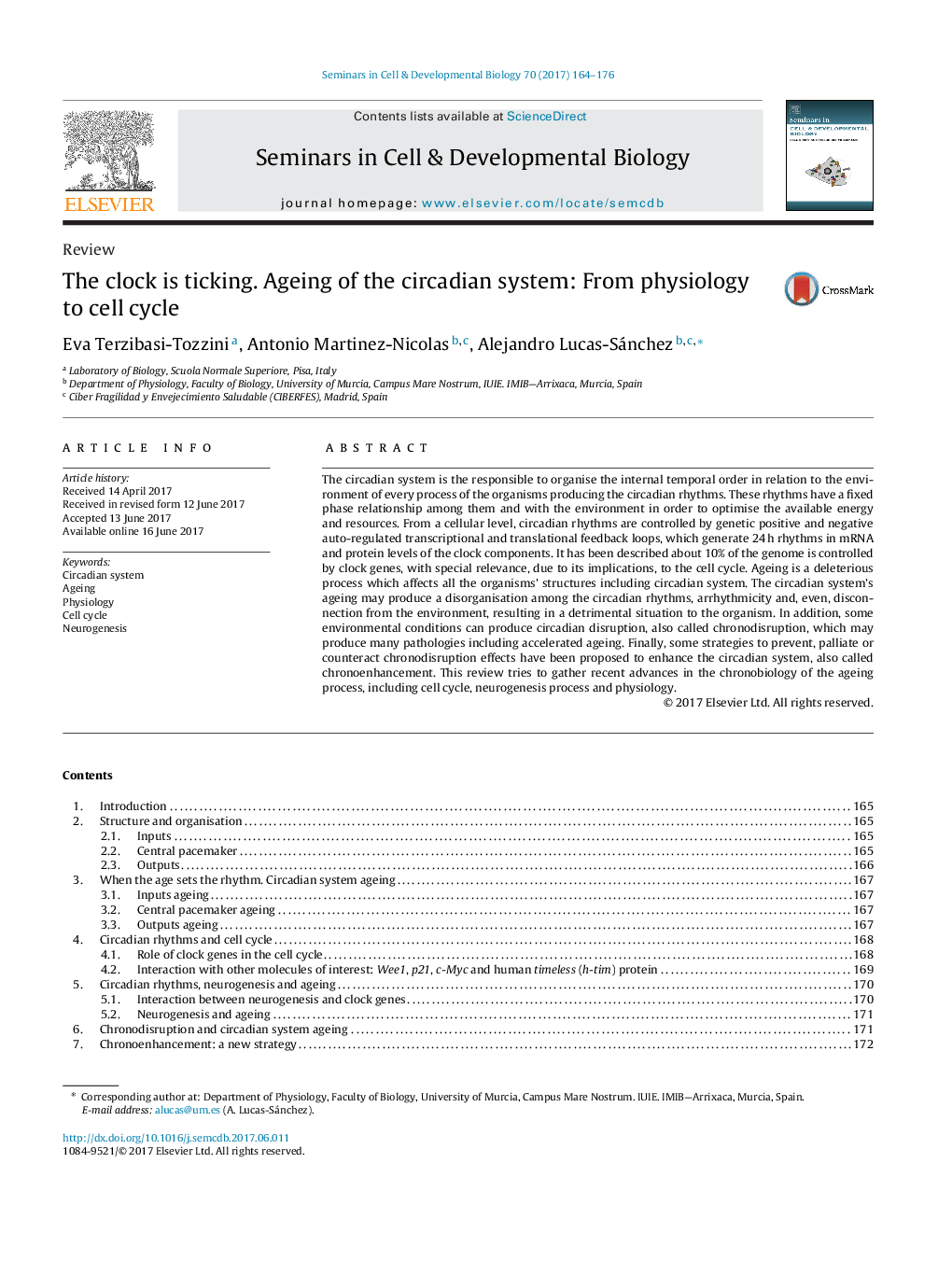| کد مقاله | کد نشریه | سال انتشار | مقاله انگلیسی | نسخه تمام متن |
|---|---|---|---|---|
| 5534798 | 1551353 | 2017 | 13 صفحه PDF | دانلود رایگان |
The circadian system is the responsible to organise the internal temporal order in relation to the environment of every process of the organisms producing the circadian rhythms. These rhythms have a fixed phase relationship among them and with the environment in order to optimise the available energy and resources. From a cellular level, circadian rhythms are controlled by genetic positive and negative auto-regulated transcriptional and translational feedback loops, which generate 24Â h rhythms in mRNA and protein levels of the clock components. It has been described about 10% of the genome is controlled by clock genes, with special relevance, due to its implications, to the cell cycle. Ageing is a deleterious process which affects all the organisms' structures including circadian system. The circadian system's ageing may produce a disorganisation among the circadian rhythms, arrhythmicity and, even, disconnection from the environment, resulting in a detrimental situation to the organism. In addition, some environmental conditions can produce circadian disruption, also called chronodisruption, which may produce many pathologies including accelerated ageing. Finally, some strategies to prevent, palliate or counteract chronodisruption effects have been proposed to enhance the circadian system, also called chronoenhancement. This review tries to gather recent advances in the chronobiology of the ageing process, including cell cycle, neurogenesis process and physiology.
Journal: Seminars in Cell & Developmental Biology - Volume 70, October 2017, Pages 164-176
